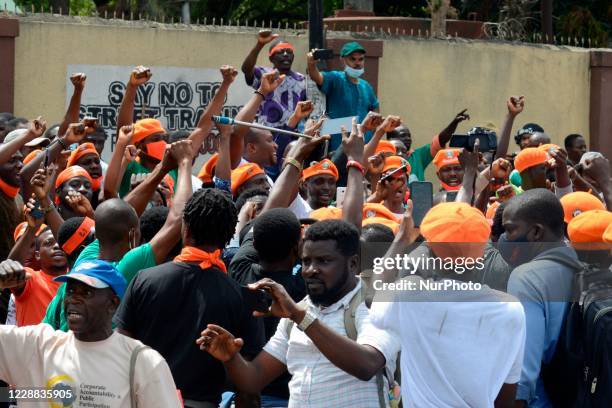Nigeria's 64th Independence Day: A Day of Reflection and Protest
On October 1, 2024, Nigeria celebrated its 64th Independence Day, marking the end of British colonial rule in 1960. This year's celebrations were marked by a mix of optimism, reflection, and protests as citizens grappled with ongoing economic challenges and political issues.
Key Highlights from the Day
Presidential Address
President Bola Ahmed Tinubu addressed the nation, urging citizens to remain patient amid the economic hardships that have plagued the country. In his speech, he acknowledged the struggles faced by Nigerians but emphasized the need for unity and resilience. He stated, "We must not lose hope in our great nation," echoing sentiments of optimism despite the prevailing difficulties.
Former President's Message
Former President Goodluck Jonathan also shared a message of hope, encouraging Nigerians to stay resilient. He highlighted the progress made since independence, including 25 years of sustained democracy and economic growth, while also calling for a collective effort to address the challenges ahead.
Protests Erupt
Despite the official celebrations, many Nigerians took to the streets to voice their frustrations over economic hardship. Protests were reported in major cities, including Lagos, where demonstrators expressed their discontent with the government's handling of the economy. The protests were reminiscent of previous movements, such as the EndSARS protests, which highlighted issues of police brutality and governance.

International Reactions
The United States and United Kingdom extended their congratulations to Nigeria on this significant anniversary. U.S. Secretary of State Anthony Blinken issued a statement recognizing the importance of the day and expressing support for the Nigerian people.
Regional Tensions
In the South-East region, the Indigenous People of Biafra (IPOB) declared a ban on Independence Day celebrations, reflecting ongoing tensions and calls for self-determination. This move further complicated the national narrative surrounding the day, as it underscored the divisions within the country.
Cultural Celebrations
In a more positive light, the Nigerian community in Manitoba, Canada, celebrated the day with the first-ever flag-raising ceremony at the Manitoba Legislative Building. This event marked a significant moment for the diaspora, showcasing the cultural pride and heritage of Nigerians abroad.
Public Sentiment
Reactions to President Tinubu's speech were mixed, with many Nigerians taking to social media to express their views. Some praised his call for unity, while others criticized the government for failing to address the pressing issues affecting daily life.

Nigeria's 64th Independence Day was a poignant reminder of the country's journey since gaining independence. While there were moments of celebration and reflection, the day was also marked by protests and calls for change. As Nigeria continues to navigate its challenges, the voices of its citizens remain crucial in shaping the future of the nation. The blend of hope, frustration, and determination encapsulates the spirit of a country striving for a better tomorrow.
For more detailed updates, you can visit the following links:




